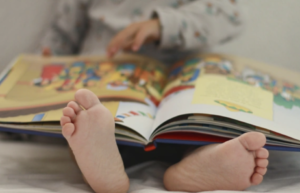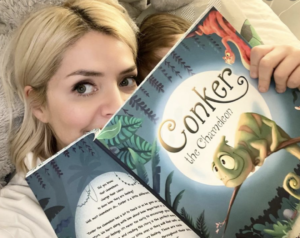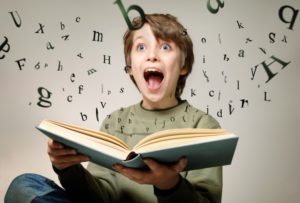Dyslexia was (and still is) a diagnosis that gets thrown around too much in schools. I know we’ve all fallen victim to Dr Google when it comes to self-diagnosing, but this really isn’t helpful when it comes to your child’s reading.
How will I know if my child is dyslexic?
According the NHS UK website, symptoms can include:
- Delayed speech development compared to children of a similar age
- Unable to pronounce long words properly ( e.g. “hecilopter” instead of “helicopter” or “beddy tear” instead of teddy bear”)
- Difficulties expressing themselves with language
- Can’t understand or appreciate rhyming words
- Uninterested in learning letters of the alphabet.
These are just a very small selection of some of the symptoms and this is by no means a complete list. Check out the NHS UK website for more information.
I’d like to start by saying, do not, I repeat, DO NOT assume that if your child has done or does do these things, that they have dyslexia.
From my experience as a teacher and growing up, these behaviours are all very normal and a part of the learning process.
Take me for example, I was unable to pronounce “ambulance” properly until I was about 7 and still get my lefts and rights muddled. It’s actually got to the stage in my family whereby we have a “Hannah left” or an “actual left”.
I was never tested as a child nor did my mum think it was necessary and I actually now feel these quirks are what make me who I am today.
What should you do if you suspect your child has dyslexia?
Do not, under any circumstances, tell your child about your concerns. Especially if you only suspect it could be the case.
I’ve witnessed many children over the years become immensely influenced by a diagnosis.

Whether it be dyslexia, ADHD or even anxiety, when a child (or adult) has been given a label like this, it can be all consuming and impact every part of their life.
I’ve had some learners opt out of work or completely write off activities because of what they’ve been told. And more often than not, these diagnoses came from Dr Google, not a GP or health professional.
However, if you are genuinely concerned about your child’s learning needs and you think it’s having an impact on their education or life in general, these are the steps you should take:
- Talk to your child’s teacher
- If your child’s teacher has an ongoing concern, take your child to see you GP. This will determine if your child has any underlying audio or visual impairments that could affect their ability to learn
- If no underlying health problems have been identified, different teaching methods may need to be tried
- You may request an assessment to identify any special needs they may have.
 Dyslexia is not the end of your child’s reading journey.
Dyslexia is not the end of your child’s reading journey.
Once you and your child understand what’s been knocking their confidence, you can now focus on getting access to books and materials that they can access.
It will not hold your child back. All of their hopes and dreams for the future can still be realised. You just need to work together with your child’s school to ensure they get the support they need to access their learning.
Orlando Bloom, Richard Branson, Tom Cruise, Leonardo da Vinci, Walt Disney, Jim Carrey, Sally Gardner, Whoopi Goldberg, Albert Einstein, Keira Knightley, Jamie Oliver, Holly Willoughby are just a few people who all have dyslexia and have gone on to live reasonably successful lives (depending on how you measure success).
 How you can support them:
How you can support them:
- Audiobooks can be a great alternative to reading
- Typing on computers or tablets to remove stress of writing
- Make phonics and letters fun with games
- Old wooden rulers can help guide your child through lines on a page
- Books with large font and easily decodable words
- Reassure them that it does not define them.
We should change the perception of dyslexia from weakness to strength. Children with dyslexia have brains that are programmed in a distinctly unique way. They see the world in an entirely different way to you or me. That’s pretty cool if you ask me.
“The advantage of dyslexia is that my brain puts information in my head in a different way.”
Whoopi Goldberg, Actress and Singer

Find out more about closing the attainment gap between learners in your school.


